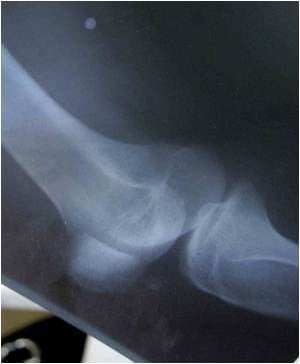In a study it was found that only 3 percent of them developed a first cancer within nine years and the overall cancer risk was not dependent on the type of arthritis.

"Some studies have suggested that taking anti-TNFs may increase an individual's risk of cancer however this study provides long term evidence that an overall risk of cancer is not associated with this group of treatments", said Dr. PhD, Lene Dreyer from the Department of Rheumatology at Gentofte University Hospital. "TNF is a small signalling molecule called a cytokine and is able to inhibit the development of tumours by interfering with signalling pathways. Therefore drugs targeting TNF can influence the development of tumours, although the extent of this impact remains unclear."
The study was based on the national Danish DANBIO registry which was initiated in the year 2000 to monitor treatment with biologic medicines in Denmark and includes patients with RA, PsA and ankylosing spondylitis. A national cohort of 13,699 patients was identified and of these, 5,598 (41 percent) had started anti-TNF treatment. The data from the DANBIO database was linked with the Danish Cancer Registry and analysed.
Incidence of cancer among patients ever treated with anti-TNF agents was compared to that of patients not treated, by evaluating relative risks. The risk of developing cancer was not shown to increase with time post initiation of anti-TNF therapy (p=0.51), nor with duration of anti-TNF therapy (p=0.19) and it was shown to be independent of the type of anti-TNF agent received (p=0.99). Analysis for the risk of developing specific cancers is still ongoing.
Separate study shows the risk of mortality is the same with both etanercept (Enbrel) and DMARDs (LB0007)In a further study, data from a large UK observational cohort were analysed to compare mortality rates of 3,431 (71.5%) patients treated with the anti-TNF etanercept and 1,365 (28.5%) treated with disease modifying anti-rheumatic drugs (DMARDs). Results showed that whilst crude mortality rates were lower in the etanercept group at 1.31% versus 2.27%, the difference did not reach statistical significance in the more conservative of the scenarios modelled.
Source-Eurekalert













